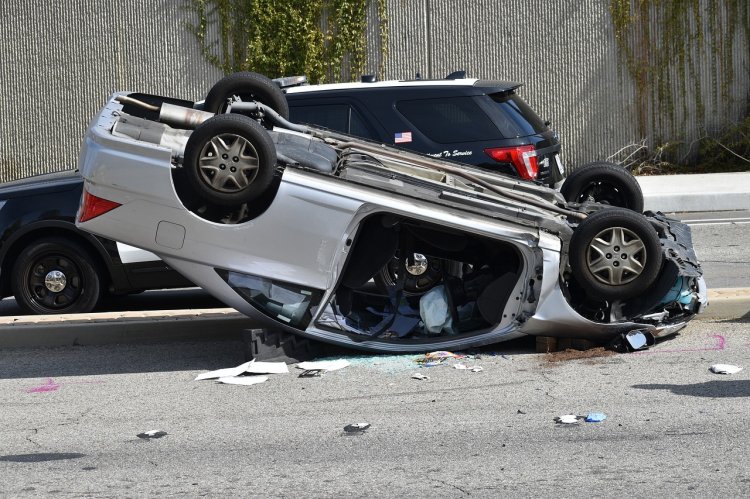Rollover Accidents: Injuries Sustained and At-Risk Vehicles
Rollover accidents are among the most dangerous types of car crashes. They often result in serious injuries or even death. These accidents occur when a vehicle tips over onto its side or roof, usually due to a sudden turn, collision, or loss of control. While all vehicles can roll over, some are more prone to these accidents than others.
In the United States, rollover accidents happen frequently, especially in areas with high-speed highways and winding roads. Factors such as vehicle design, road conditions, and driver behavior contribute to these crashes. One important aspect to consider is the leading causes of rollover accidents. Understanding these causes can help drivers reduce their risk and stay safer on the road.
Common Injuries Sustained in Rollover Accidents
Rollover accidents often lead to severe injuries due to the impact and movement of passengers inside the vehicle.
Some of the most common injuries include:
Head and Brain Injuries
When a vehicle rolls over, passengers may hit their heads on the roof, windows, or other hard surfaces. This can cause concussions, skull fractures, or traumatic brain injuries (TBIs). In severe cases, brain damage can lead to long-term disabilities or even death.
Spinal Cord Injuries
The force of a rollover accident can put extreme pressure on the spine. This may lead to fractures, herniated discs, or even paralysis. Spinal cord injuries often require extensive medical treatment and rehabilitation.
Broken Bones and Fractures
Arms, legs, ribs, and other bones are at high risk of breaking during a rollover accident. The intense impact and movement inside the vehicle can cause severe fractures that may require surgery.
Internal Injuries
Rollover accidents can cause damage to internal organs such as the liver, lungs, or spleen. These injuries are dangerous because they may not be immediately visible, making medical attention crucial after a crash.
Cuts and Lacerations
Broken glass, debris, and sharp objects inside the vehicle can cause deep cuts and wounds. These injuries can lead to excessive bleeding or infections if not treated quickly.
At-Risk Vehicles for Rollover Accidents
Not all vehicles have the same risk of rolling over. Some vehicles are more prone to these accidents due to their height, weight, and design. Here are the most at-risk vehicle types:
SUVs (Sport Utility Vehicles)
SUVs are among the most common vehicles involved in rollover accidents. Their high center of gravity makes them less stable than smaller cars. If an SUV takes a sharp turn at high speed, it can easily tip over.
Pickup Trucks
Pickup trucks are also prone to rollovers, especially when carrying heavy loads. If the cargo is not balanced properly, the truck can become unstable and tip over during sudden movements.
Vans
Passenger and cargo vans have a tall and boxy design, which increases the risk of rollovers. When carrying multiple passengers or heavy loads, the risk becomes even higher.
Jeeps and Off-Road Vehicles
Vehicles designed for off-road use often have a higher risk of rolling over, especially on uneven terrain. These vehicles may lack the stability needed to stay upright during sudden turns or bumps.
Compact and Lightweight Cars
While larger vehicles are more prone to rollovers, small and lightweight cars can also roll over, especially if they are hit by a larger vehicle or involved in a side-impact crash.
Conclusion
Rollover accidents are serious and often result in severe injuries or fatalities. Understanding the causes of rollover accidents can help drivers take preventive measures to stay safe on the road. While some vehicles, such as SUVs and pickup trucks, are more prone to rollovers, all drivers should practice safe driving habits to reduce the risk. By maintaining safe speeds, avoiding sudden movements, and using proper vehicle maintenance, drivers can significantly lower their chances of being involved in a rollover accident.





